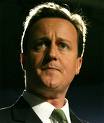 line up to oppose government plans to legalise same-sex marriage.
line up to oppose government plans to legalise same-sex marriage.
According to The Guardian, Tory MPs who have raised concerns about the move with ministers at meetings of the 1922 committee are behind the threat.
Mr Cameron announced his support for same-sex marriage at the Conservative Party Conference last year, but the move was heavily criticised by a range of prominent Tory figures.
Gerard Howarth, a defence minister in the Coalition Government, said that the move was “a step too far”. And a former party former chairman, Lord Tebbit, questioned the Government’s approach on the issue.
He said: “I would have thought there were other priorities at a time like this. There can be no such thing as same-sex marriage. Marriage is between a man and a woman to the exclusion of all others.”
Backbenchers are likely to be given a free vote in any vote on legalising gay marriage, the Guardian reports, meaning that voting against the move would not technically count as a rebellion for backbenchers.
The prime minister told his Party conference that the government would hold a consultation on legalising gay marriage. He said: “We’re consulting on legalising gay marriage. To anyone who has reservations, I say: Yes, it’s about equality, but it’s also about something else: commitment.
“Conservatives believe in the ties that bind us; that society is stronger when we make vows to each other and support each other. So I don’t support gay marriage despite being a Conservative. I support gay marriage because I’m a Conservative.”
A range of religious leaders criticised Mr Cameron’s move.
The Catholic Archbishop of Southwark, Peter Smith, said: “Marriage by its very nature is between a man and a woman and it is the essential foundation of family life.
“The state should uphold this common understanding of marriage rather than attempting to change its meaning.”
Dr Dave Landrum, director of advocacy at the Evangelical Alliance, told the Daily Telegraph: “In seeking to re-define marriage David Cameron may have kept the coalition happy, but may also have signalled the end of conservatism. If you can’t conserve the institution of marriage, what can you conserve?”
A poll published last November showed that the Government risks losing the votes of churchgoers by pressing ahead with the controversial plans.
The poll, conducted by ComRes, has revealed that 83 per cent of churchgoers are opposed to Mr Cameron’s plans to rewrite the definition of marriage.
And 57 per cent said that the Prime Minister’s commitment to rewriting the definition of marriage made them less likely to vote for the Conservatives.
In contrast, not one of the survey’s 544 respondents said that Mr Cameron’s support for the radical proposal made them more likely to vote for the party.
Nearly 90 per cent of those surveyed were concerned that schools would be required to teach the equal validity of same-sex and heterosexual relationships.
The new survey also revealed that the vast majority of churchgoers have grave concerns about tampering with the definition of marriage.
Nearly eighty per cent feared it would be harder to argue against ‘other novel types of relationship’ such as polygamy.
And 85 per cent were concerned that the value of marriage would be further undermined.
A rebellion by more than 100 Conservative MPs would not threaten any legislation on gay marriage, however.
All Liberal Democrat MPs would vote in favour, as would most Labour MPs. The Tory “payroll vote” – ministers and their aides – would be expected to support the government. The prime minister would be keen to ensure that a majority of his party’s 306 MPs supported the move.















